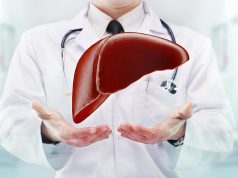Progression-free survival longer with vepdegestrant than fulvestrant in subgroup with ESR1 mutations, but not in the overall population
By Elana Gotkine HealthDay Reporter
MONDAY, June 2, 2025 (HealthDay News) — For patients with estrogen receptor (ER)-positive, human epidermal growth factor receptor 2 (HER2)-negative advanced breast cancer, the oral proteolysis-targeting chimera ER degrader, vepdegestrant, leads to significantly longer progression-free survival in patients with ESR1 mutations, according to a study published online May 31 in the New England Journal of Medicine. The research was presented to coincide with the annual meeting of the American Society of Clinical Oncology, held from May 31 to June 4 in Chicago.
Mario Campone, M.D., Ph.D., from the Institut de Cancérologie de l’Ouest Angers-Nantes in Saint-Herblain, France, and colleagues conducted a phase 3, open-label, randomized trial involving patients with ER-positive, HER2-negative advanced breast cancer who had received one previous line of cyclin-dependent kinase 4 and 6 inhibitor therapy plus one line of endocrine therapy. Patients were randomly assigned to receive vepdegestrant at a dose of 200 mg orally once every day of each 28-day cycle or fulvestrant at a dose of 500 mg on day 1 and day 15 of cycle 1 and on day 1 of subsequent cycles (313 and 311 patients, respectively).
The researchers found that median progression-free survival was 5.0 and 2.1 months with vepdegestrant and fulvestrant, respectively, among the 270 patients with ESR1 mutations (hazard ratio, 0.58). Median progression-free survival was 3.8 and 3.6 months with vepdegestrant and fulvestrant, respectively, among all patients. In 23.4 and 17.6 percent of the patients in the vepdegestrant and fulvestrant groups, respectively, adverse events of grade 3 or higher occurred; adverse events leading to discontinuation occurred in 2.9 and 0.7 percent, respectively.
“Additional follow-up is needed to further characterize the long-term efficacy and safety of vepdegestrant in this population,” the authors write.
The study was funded by Pfizer, which is developing vepdegestrant.
Copyright © 2025 HealthDay. All rights reserved.








